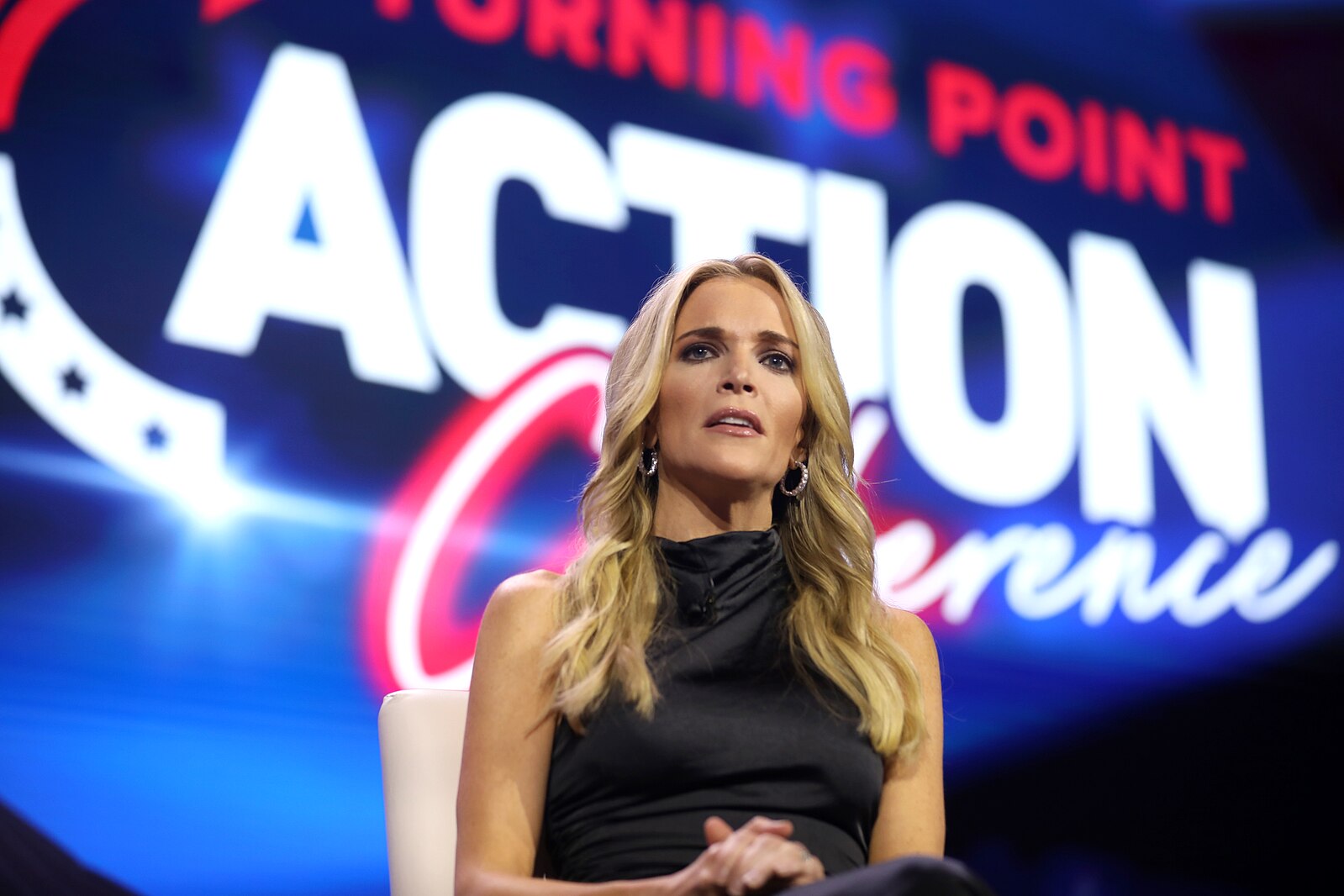Megyn Kelly, a former Fox News host and now a prominent conservative commentator, found herself at the center of a heated controversy following her remarks during the first night of the Democratic National Convention. The incident has sparked widespread criticism from political experts, journalists, and commentators, who have labeled her comments as racially insensitive, reigniting discussions on the role of race in American discourse.
The uproar began when Kelly took to X, formerly known as Twitter, to comment on a speech by Laphonza Butler, the newly appointed Senator from California who succeeded the late Dianne Feinstein. Butler, like Vice President Kamala Harris, is a graduate of a historically Black college or university (HBCU), a fact she proudly highlighted during her address at the DNC. However, Kelly’s reaction to Butler’s celebration of her HBCU background drew immediate backlash.
Kelly’s post questioned the significance of Butler’s and Harris’s educational backgrounds by drawing an unfounded comparison to predominantly white institutions. Her comment implied that acknowledging one’s HBCU education was analogous to a white person proclaiming pride in attending a majority-white university. This remark was quickly condemned by many as racially insensitive and ignorant of the historical context behind HBCUs.
Prominent journalists and political commentators did not hesitate to voice their disapproval. Longtime journalist Joan Walsh was among the first to criticize Kelly’s statement, suggesting that Kelly’s comment was indicative of a broader misunderstanding or deliberate ignorance of America’s racial history. Other voices, such as The Atlantic’s Norman Ornstein and The Bulwark’s Tim Miller, were even more direct, labeling Kelly’s comment as embarrassing and racist.
The backlash was not limited to media figures. Many pointed out that historically Black colleges and universities were founded out of necessity during a time when African Americans were systematically excluded from existing institutions of higher education. The legacy of HBCUs is deeply intertwined with the fight for civil rights and equal access to education, making Kelly’s remarks particularly offensive to those who understand this history.
The criticism of Kelly’s comments also drew attention to the broader societal issue of racial disparities in education. Many of her detractors emphasized the importance of recognizing and celebrating the achievements of HBCU graduates, particularly in a society where access to education has historically been unequal. They argued that Kelly’s comments reflected a fundamental misunderstanding of why institutions like Jackson State University, attended by Senator Butler, and Howard University, attended by Vice President Harris, are significant not just for their alumni, but for the progress they represent in the ongoing struggle for racial equality.
The National Museum of African American History and Culture and the Thurgood Marshall College Fund have long highlighted the vital role that HBCUs play in providing educational opportunities for African Americans who were once legally denied access to education. Kelly’s remarks, seen as dismissive of this legacy, have further ignited conversations about the importance of understanding and respecting the historical contexts that shape American society.
As the backlash against Kelly continues to unfold, it underscores the ongoing challenges of navigating discussions on race in America. Her comments have not only sparked a significant controversy but also serve as a reminder of the deep-seated issues that still permeate public discourse on race, education, and history.



 Melania Trump Chairs Historic U.N. Security Council Meeting on Children Amid Iran Conflict
Melania Trump Chairs Historic U.N. Security Council Meeting on Children Amid Iran Conflict  Iran Detains U.S. Citizens Amid Escalating Conflict With the United States and Israel
Iran Detains U.S. Citizens Amid Escalating Conflict With the United States and Israel  Supreme Court Backs GOP Lawmaker in New York Redistricting Fight Ahead of Midterms
Supreme Court Backs GOP Lawmaker in New York Redistricting Fight Ahead of Midterms  U.S. Lawmakers Question Trump’s Iran Strategy After Joint U.S.-Israeli Strikes
U.S. Lawmakers Question Trump’s Iran Strategy After Joint U.S.-Israeli Strikes  AI is already creeping into election campaigns. NZ’s rules aren’t ready
AI is already creeping into election campaigns. NZ’s rules aren’t ready  Does international law still matter? The strike on the girls’ school in Iran shows why we need it
Does international law still matter? The strike on the girls’ school in Iran shows why we need it  Marco Rubio to Brief Congress After U.S.-Israeli Strikes on Iran
Marco Rubio to Brief Congress After U.S.-Israeli Strikes on Iran  Trump Announces U.S. Strikes on Iran Navy as Conflict Escalates
Trump Announces U.S. Strikes on Iran Navy as Conflict Escalates  Rubio Says U.S. Would Not Target School After Deadly Iran Strike Reports
Rubio Says U.S. Would Not Target School After Deadly Iran Strike Reports  Suspected Drone Strike Hits RAF Akrotiri Base in Cyprus, Causing Limited Damage
Suspected Drone Strike Hits RAF Akrotiri Base in Cyprus, Causing Limited Damage  Israel Prepares Weeks-Long Military Campaign Against Iran Amid Escalating Air Strikes
Israel Prepares Weeks-Long Military Campaign Against Iran Amid Escalating Air Strikes  UK Accepts U.S. Request to Use British Bases for Defensive Strikes on Iranian Missiles
UK Accepts U.S. Request to Use British Bases for Defensive Strikes on Iranian Missiles  Trump’s Iran Strikes Spark War Powers Clash in Congress
Trump’s Iran Strikes Spark War Powers Clash in Congress  Zelenskiy Urges Change in Iran After U.S. and Israeli Strikes, Cites Drone Support for Russia
Zelenskiy Urges Change in Iran After U.S. and Israeli Strikes, Cites Drone Support for Russia  U.S. Deploys Tomahawks, B-2 Bombers, F-35 Jets and AI Tools in Operation Epic Fury Against Iran
U.S. Deploys Tomahawks, B-2 Bombers, F-35 Jets and AI Tools in Operation Epic Fury Against Iran  Australia Rules Out Military Involvement in Iran Conflict as Middle East Tensions Escalate
Australia Rules Out Military Involvement in Iran Conflict as Middle East Tensions Escalate 






























